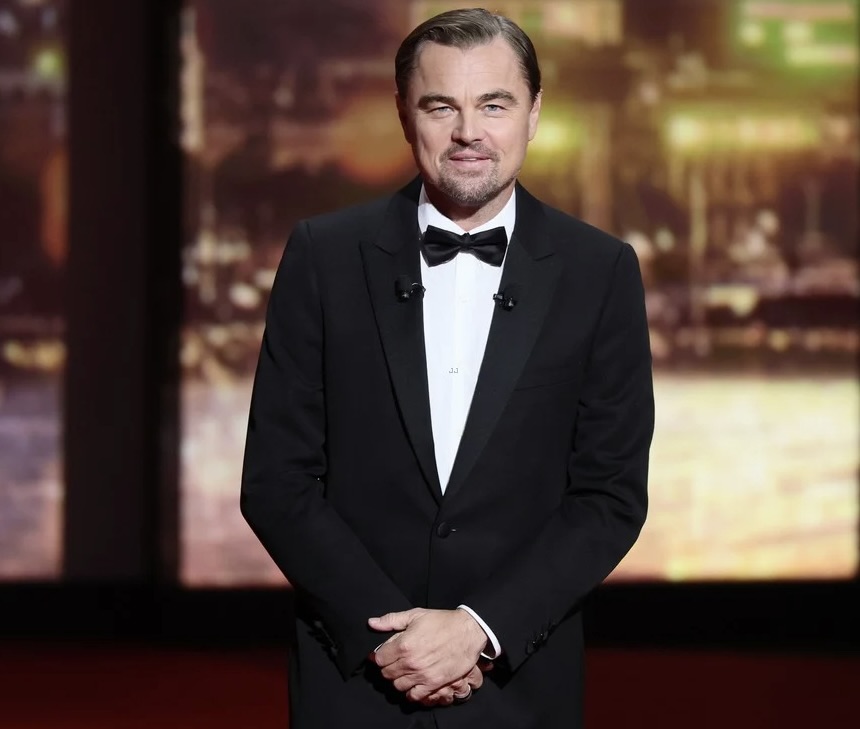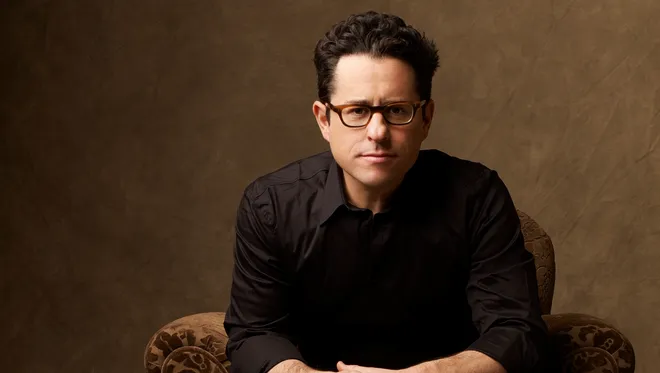Leonardo DiCaprio has entered a new dimension—one of imagination, social conscience, and legacy. Through his production company Appian Way, DiCaprio is producing an authorized documentary on the life of The Twilight Zonecreator Rod Serling, the man whose haunting monologues and moral parables defined mid-century television. Directed by Jonah Tulis, best known for GameStop: Rise of the Players and Console Wars, the film marks a rare, deeply sanctioned look into Serling’s life and ideas, with full participation from his daughters, Anne and Jodi Serling, who are serving as executive producers.
While details are scarce, early reports confirm the project has wrapped principal photography in Rhode Island and is now in post-production. The film, at once a biographical deep dive and a cultural reflection, aims to reveal the contradictions and convictions of a man whose creative voice continues to echo across American media more than half a century after his death.
the storyteller who spoke in parables
Rod Serling was never simply a television writer—he was a moralist disguised as a dramatist. Through The Twilight Zone, which aired from 1959 to 1964, he challenged audiences to confront racism, conformity, militarism, and paranoia under the veil of science fiction. The eerie tone, cryptic openings, and unexpected endings made his work timeless, but what made it radical was its conscience.
Serling used allegory to outwit censorship. At a time when television sponsors could reject entire scripts for political reasons, he coded social commentary into alien worlds and dystopian futures. A story about interplanetary fear mirrored McCarthy-era suspicion; a tale about robotic workers critiqued industrial exploitation. As Anne Serling has often said, her father “didn’t write science fiction, he wrote about the human condition through the lens of imagination.”
This new documentary, according to insiders, intends to go beyond myth to expose the fire beneath that imagination—the veteran who witnessed World War II trauma, the husband and father haunted by deadlines, and the writer who fought an industry more interested in pleasing sponsors than awakening minds.
filmmakers and their scope
Jonah Tulis, known for sharp, culturally literate documentaries, leads the film’s direction and co-writing. His past projects, such as Console Wars (Paramount+) and GameStop: Rise of the Players (Neon), blended entertainment history with human narrative. For this venture, Tulis reportedly aims to blend archival material, personal recordings, and dramatic reenactments—with actor Tom DeNucci portraying Serling in select sequences.
The authorized nature of the documentary opens access to unseen archives: home movies, dictated recordings, and letters preserved by the Serling family. Early teasers mention the film being “told in Rod’s own voice,” incorporating never-before-heard dictations. This approach promises intimacy—Serling narrating his own life, from beyond the veil of the black-and-white dimension he once described.
Appian Way’s involvement also signals ambition. DiCaprio’s production company has a track record of projects unafraid of moral complexity—The Revenant, Killers of the Flower Moon, and numerous documentaries exploring environmental and historical themes. For DiCaprio, producing a film on Serling aligns naturally with his reputation as an advocate for critical storytelling.
View this post on Instagram
the life that defied its medium
The documentary is expected to follow Serling’s journey from his beginnings in Binghamton, New York, to the forefront of 1950s live television. Before The Twilight Zone, Serling was already one of TV’s most decorated writers, penning powerful teleplays like Patterns (1955) and Requiem for a Heavyweight (1956), both of which won Emmy Awards. But his integrity made him a difficult fit for network television’s restrictions. Sponsors often censored his scripts for being too political or too grim.
His solution was radical: disguise social criticism as genre fiction. Thus was born The Twilight Zone, a weekly anthology that fused speculative imagination with biting social allegory. For Serling, science fiction wasn’t escapism—it was camouflage. The show became a vessel for commentaries on segregation, nuclear fear, and the psychological toll of war, all delivered through the unsettling familiarity of his opening monologues: “You unlock this door with the key of imagination…”
The strain of constant creation—writing or revising more than 90 of the show’s 156 episodes—took its toll. By the time he launched Night Gallery in 1969, Serling was battling exhaustion and disillusionment with television’s commercialization. Yet, even as his influence waned in mainstream media, his moral voice only grew louder posthumously.
the modern relevance of rod serling
Few television creators remain as intellectually present as Serling. Every reboot—from the 1980s Twilight Zone revival to Jordan Peele’s 2019 iteration—has underscored how prophetic Serling’s vision was. His scripts warned against authoritarianism, media manipulation, and moral decay—issues that feel freshly urgent today.
The forthcoming documentary, insiders suggest, will trace how Serling’s warnings about conformity and moral blindness map eerily onto the modern era. His words, half a century old, mirror the dissonance of our own digital culture: when empathy is scarce, and fear is commodified.
Through DiCaprio’s lens, the story isn’t only retrospective—it’s connective. Serling’s voice will be presented as a mirror to our time, an artist who foresaw the ethical dilemmas of entertainment long before streaming algorithms or political echo chambers.
film culture
Anne and Jodi Serling’s involvement lends authenticity but also responsibility. As executive producers, they ensure the film respects Rod’s truth without mythologizing it. The challenge for Tulis and DiCaprio will be balance—celebrating Serling’s idealism while confronting his fragility.
Serling was a man of contradictions: fiercely idealistic, yet prone to self-doubt; articulate in public, yet quietly tormented. His wartime experiences in the Philippines left psychological scars that informed his empathy and his darkness. To understand his art, one must also reckon with the toll it took.
The production reportedly shot in Rhode Island—standing in for upstate New York settings from Serling’s early life—and features archival recreations of his writing spaces. By embedding visual texture into biography, the film aims to humanize the man behind the omniscient voiceover.
the promise of a definitive portrait
If successful, this documentary could stand as the definitive portrait of Rod Serling—bridging the analytical and the emotional. It promises not only to revisit The Twilight Zone but to expose the conditions that birthed it: an era of censorship, Cold War paranoia, and moral unease.
In today’s culture of reboots and nostalgia, a film like this has potential to restore depth—to remind viewers that Serling wasn’t merely the narrator of eerie tales but a craftsman of conscience. His gift was to make the unreal more truthful than reality itself.
For DiCaprio and Appian Way, the Serling project represents more than a biographical curiosity—it’s a moral inheritance. Serling’s belief that art must “illuminate the dark corners of human behavior” aligns perfectly with the producer’s body of socially conscious work. As one early statement from the production team suggested, “This is not just about a show—it’s about a man who believed television could change the world.”
impression
As the film moves toward completion, anticipation builds around where and when it will premiere. Either it lands with a major streamer or a theatrical partner, its significance lies in timing. At a moment when truth, media, and morality are under renewed scrutiny, Rod Serling’s voice returns—not as fiction, but as warning.
In the opening lines of his most famous series, Serling invited us into “a land of shadow and substance, of things and ideas.” This documentary, six decades later, promises to take us back there—to explore the border between imagination and integrity, creation and conviction.
Leonardo DiCaprio has crossed into that fifth dimension not to imitate The Twilight Zone, but to rediscover the man who built it. And in doing so, he’s reminding us that the strangest place of all might still be reality itself.
No comments yet.








